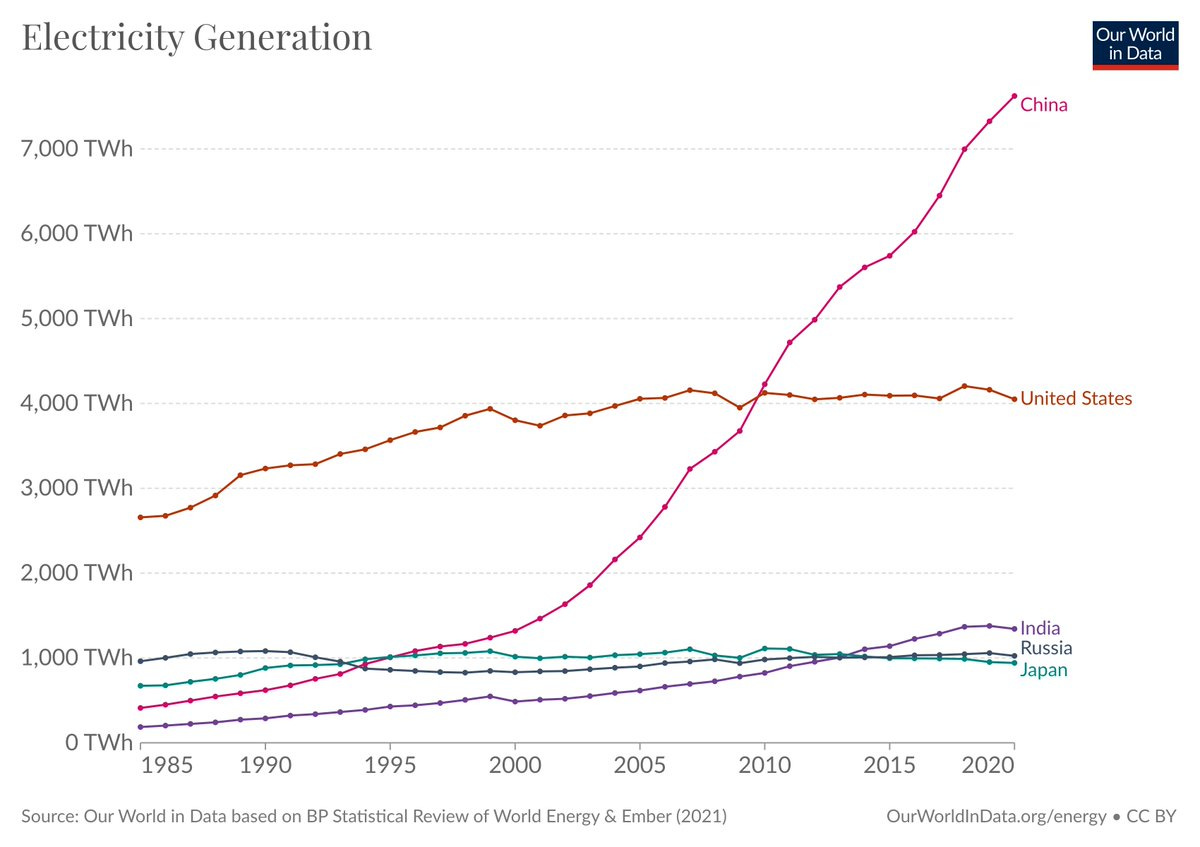This 1959 ad shows the flying-car future we were promised
More power to you
A 1959 ad shows the flying-car future we were promised
When people say things like “we were promised flying cars,” I sometimes wonder, “who promised this?”
I guess this is what they mean. From a 1959 ad that ran in the LA Times:
“They’re working on it!” the ad claims. “Some of this is happening already.” (Implying, of course, that some of it was still pretty speculative.)
The ability to “dial” a book, lecture, or demonstration is here; the ultrasound dishwasher, automatic bed-maker, and flying car sadly are not.
But here’s what’s most interesting to me: First, the reference, without explanation or justification, to “tomorrow’s higher standard of living”—something people simply assumed was coming. Second, that it was uncontroversial that this higher standard of living would require more electricity. Finally, the boasting of doubling electricity production in ten years. As I’ve pointed out, society once had a different fundamental attitude towards growth.
The US did, in fact, approximately double electricity generation every decade from 1950 until 1973—the year of the oil crisis—after which electricity growth never really recovered. It took almost thirty years to double again, from 1973 to 2000, during which time it was just keeping up with population growth; that is, per-capita energy usage was not increasing. And since 2005, even the total amount produced has been flat:
US electricity generation. Data from US Energy Information Administration
“The electric companies are resolved,” the ad says, to maintain for America “the best electric power service in the world.” Well, we are still one of the top overall producers, second only to China:
But since the oil shocks, I’d say that “resolve” has been shaken.
Original post: https://rootsofprogress.org/flying-car-ad
Video: The Wright brothers and their lessons for inventors and founders
I made a video together with Garry Tan for his YouTube channel on how the Wright brothers invented the airplane, and lessons for inventors and founders today: passion, iteration, first-principles thinking, and choosing the right time to launch.
See all my talks, interviews and videos here.
Interview: Outlier Academy with Daniel Scrivner
I was interviewed by Daniel Scrivner for the podcast Outlier Academy, a highlight:
I think a lot of what we’ve lost is a sense of our agency as individuals and as a civilization to make the future better and to improve our station and to tackle any problems that come up. So rather than be a complacent optimist and deny that any problems will come up or deny that any problems exist, I want to reassert our agency to solve those problems, both the problems that nature has imposed upon us and the problems that we create for ourselves. There are both types and progress needs to deal with both. So it’s that sense of our agency is fundamentally what I want to bring back.
On low-hanging fruit:
While it’s true that overall low-hanging fruit does get picked, the other thing that happens is that our ability to pick the fruit gets increased. So we have more researchers, more scientific labs, more venture capital for more startups. We have better information technology to share ideas and for anyone to learn. We just have more surplus wealth, overall. We have better transportation technology that opens up global markets. And so just pointing to the lowing-hanging fruit phenomenon doesn’t answer, “Well, why isn’t the remaining fruit getting higher and higher? Why isn’t that balanced by our ability to pick it getting better and better?” Those things arguably they could balance out and we get constant consistent progress, or either one could overtake the other, but merely pointing to the low-hanging fruit doesn’t point out which one of those it ought to be.
On regulator incentives:
Think about the incentives of a regulator or a grant-making body. If a regulator essentially allows something that then goes badly wrong, if the FDA allows a drug that ends up harming people, or if the Nuclear Regulatory Commission gives the okay to a power plant design and then it has a meltdown or something, they’re going to get hugely negatively judged for that. But if they allow something and it goes right, they don’t really get the credit. Conversely, if they don’t allow something and then progress doesn’t happen, it’s very much invisible. And so they don’t get blamed for that either.
The topics we covered:
About Jason’s work with The Roots of Progress
Nurturing progress is a moral imperative
On Louis Pasteur
What is progress? What is technology?
On starting The Roots of Progress
The growth of progress studies
Is progress really stagnating?
How bureaucracy can slow progress
The speed of innovation
Advancements in biotech, artificial intelligence, energy technologies, and nanotech
Appreciating the progress we see on a daily basis
Listen on the show page or read the transcript.
See all my talks and interviews here.





